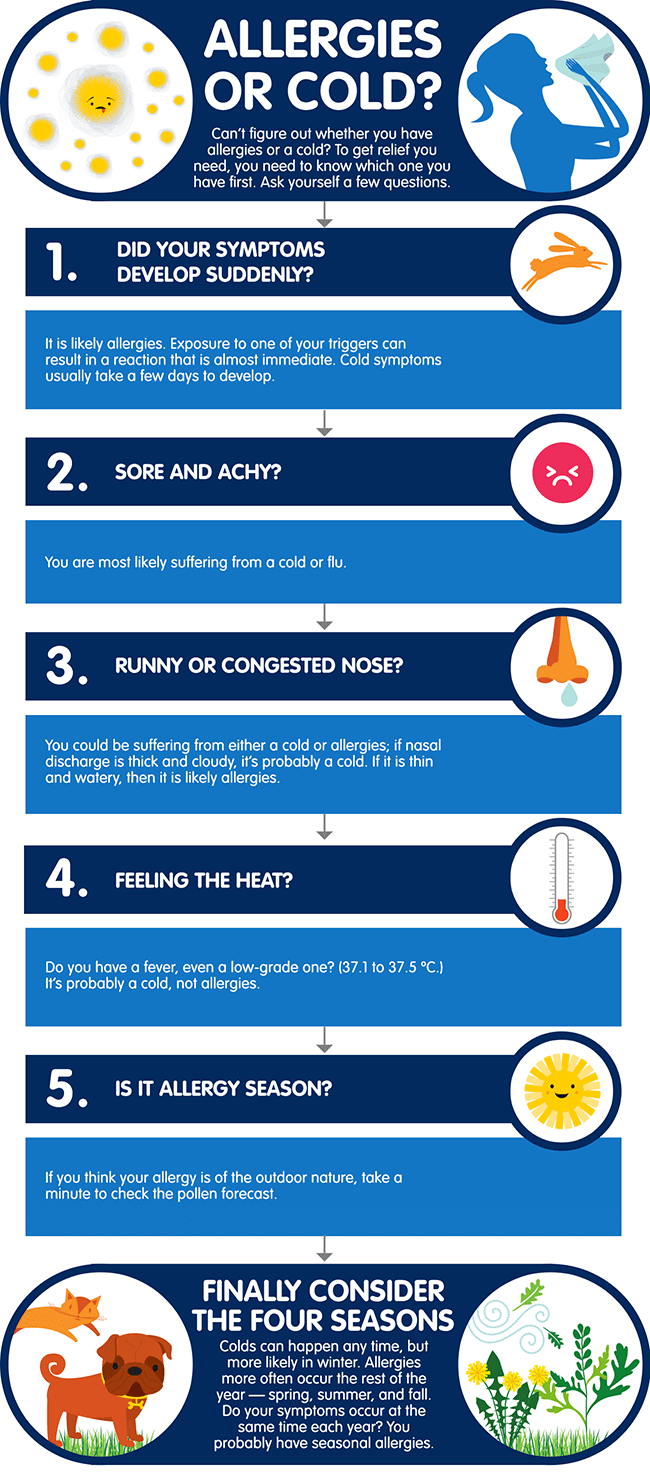
What To Do For Seasonal Allergies. Another option says Miller is to use antihistamine nasal sprays. This is because the body learns how to react to whatever it has misdiagnosed as a threat and continues to react that way every time exposure occurs. These injections expose you over time to gradual increments of your allergen so you learn to tolerate it rather than reacting with sneezing a stuffy nose or itchy watery eyes. Most people with seasonal allergies receive prescription treatment.

These injections expose you over time to gradual increments of your allergen so you learn to tolerate it rather than reacting with sneezing a stuffy nose or itchy watery eyes. COVID-19 and seasonal allergies share many symptoms but there are some key differences between the two. How to treat seasonal allergies In most cases an over-the-counter antihistamine and decongestant will do the trick. Seasonal allergies triggered by airborne pollen can lead to seasonal allergic rhinitis which affects the nose and sinuses and seasonal allergic conjunctivitis which affects the eyes. While its not always easy to tell a cold from allergies its more likely to be allergies if theres no fever if eyes are itchy if theres lots of sneezingand if it lasts longer than a few days. Eliminate common toxic triggers like wheat corn dairy soy and alcohol.
Seasonal allergies commonly called hay fever are common.
November The ragweed pollen season usually ends by mid. Unfortunately allergies can interfere with outdoor fun. Treatments that may help include extracts of the shrub butterbur and spirulina a type of dried algae. How to treat seasonal allergies In most cases an over-the-counter antihistamine and decongestant will do the trick. The asthma prescription drug montelukast. Seasonal allergies triggered by airborne pollen can lead to seasonal allergic rhinitis which affects the nose and sinuses and seasonal allergic conjunctivitis which affects the eyes.